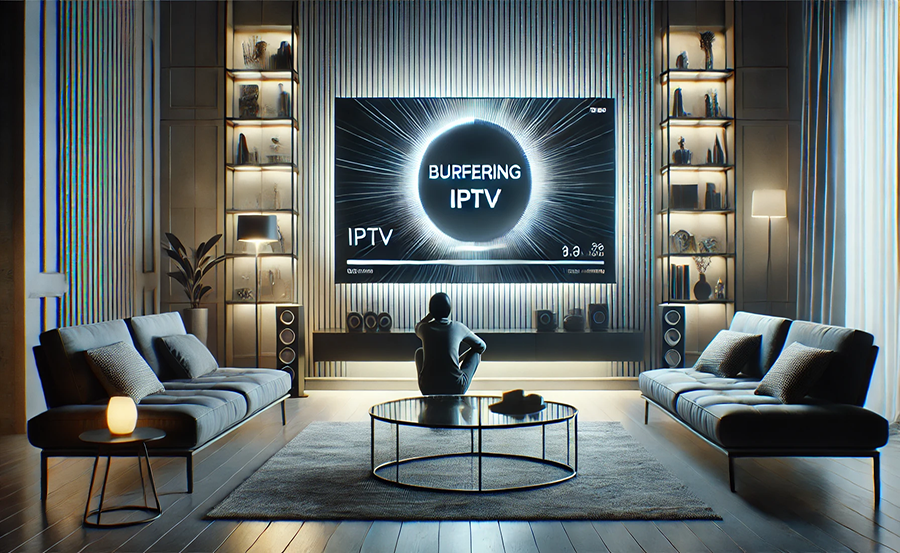In a world captivated by seamless streaming, network latency often goes unnoticed – that is until buffering issues start creeping into your IPTV experience. Whether you’re tuning into your favorite channels via IPTV for Android or engaging with global IPTV services, latency can be a silent disruptor. Understanding this hidden but critical factor can revolutionize your IPTV adventure. Let’s delve into how it affects your viewing experience and what you can do about it.
What is Network Latency and Why Does it Matter for IPTV?
Network latency refers to the time it takes for data to travel from its source to its destination. In the context of IPTV, it is the time taken for video data to transmit from the provider’s servers to your device. Though often confused with bandwidth, latency differs in that it focuses not on the volume of data but on the speed and timing of the data’s journey.
High latency can lead to noticeable lag and interruptions in video streams. Consequently, viewers may experience buffering – those frustrating pauses that disrupt smooth streaming. For IPTV services, particularly those on Android devices, minimizing latency is crucial for maintaining high-quality streaming.
Components of Network Latency
To understand the impact of network latency, it’s essential to break it down into its components:
- Propagation Delay: The time it takes for a signal to travel the physical distance between two points.
- Transmission Delay: The time required to push all data packets onto the communication medium.
- Processing Delay: The time for routers and switches to process packet headers.
- Queueing Delay: The time packets spend in routing queues while waiting for processing.
Each component plays a role, and recognizing them can help in troubleshooting and optimizing network performance for IPTV services.
How Network Latency Affects IPTV Buffering
Now that you know what network latency is, let’s explore how it impacts IPTV buffering. Essentially, higher latency increases the time it takes for video content to reach your screen, leading to interruptions:
Bufferring occurs when your device pauses playback to allow data accumulation, ensuring smoother content flow. If the video data arrives late (i.e., due to high latency), buffering becomes inevitable. This can be especially annoying during live broadcasts where real-time content viewing is expected.
The Role of Global IPTV Services
IPTV providers serve content from various locations around the world. While this ensures a broad content spectrum, it can introduce additional latency. The greater the distance the data must travel, the higher the latency incurred.
Global IPTV services aim to minimize latency through advanced technologies and infrastructure, such as Content Delivery Networks (CDNs) that distribute content more locally. Being aware of these factors allows consumers to make informed choices regarding their IPTV service providers.
IPTV for Android: Special Considerations
Android users constitute a significant portion of the IPTV viewer base. However, optimizing these platforms presents unique challenges, primarily due to variations in device hardware and Android versions. This can influence processing capabilities, thus affecting latency.
To enhance the user experience, developers need to implement optimizations focusing on reducing latency. Solutions may include efficient app architectures and leveraging Android’s native capabilities to streamline video streaming processes. Buy 1 Year IPTV Subscription and Enjoy Unlimited Content
Troubleshooting Latency Issues
Identifying causes of high latency involves assessing both your internal network setup as well as external factors related to the IPTV service. Common steps include:
- Checking your internet speed and ensuring it meets the minimum requirements for your IPTV service.
- Testing different devices, since hardware limitations can also contribute to buffering issues.
- Consulting your IPTV provider to understand potential external factors affecting latency.
By addressing these aspects, you can significantly reduce buffering issues and enhance your IPTV viewing pleasure.
Managing and Optimizing Network Latency for IPTV
Mitigating latency requires a combination of technological tweaks and savvy consumer choices. Here are several strategies to consider:
Choosing the Right IPTV Provider
An IPTV provider with state-of-the-art infrastructure can offer reduced latency and buffering incidents. When selecting an IPTV provider, consider factors such as server location, CDN usage, and overall reputation for quality service delivery.
Providers that boast a global presence are better equipped to deliver seamless content, as they use multiple data centers strategically located worldwide. This minimizes latency by keeping the data journey as short as possible.
Improve Your Network Infrastructure
Enhancing your home’s network setup can notably cut down latency. Evaluate your network devices: routers, modems, and cables. Ensure they support the latest standards, such as Wi-Fi 6, which offers reduced latency benefits.
Additionally, consider wired connections where feasible, as they generally present lower latency compared to their wireless counterparts. Streaming directly from your router may also prevent additional delays caused by interference or signal obstruction.
Update Software and Devices Regularly
Keep your IPTV devices’ software and firmware up to date for optimal performance. These updates often contain patches that fix known latency issues, thus enhancing streaming efficiency.
Furthermore, maintaining the latest versions ensures compatibility with modern streaming services, preventing unexpected disruption in service quality.
Use VPNs Wisely
While VPNs may offer privacy and content access advantages, they can increase latency due to additional routing layers. If streaming is significantly impacted, consider disabling the VPN during IPTV use, or choosing an option optimized for speed.
Some high-performance VPNs offer specialized servers that reduce latency impacts – a worthwhile consideration when consistently facing buffering issues.
Embracing Future Technological Advancements
As technology evolves, so too do the methods to reduce network latency. Emerging technologies are focused on low-latency networks, with 5G cellular technology promising exponential improvements over its predecessors. Its deployment could act as a game-changer for IPTV services.
Edge Computing and IPTV
Edge computing, which processes data closer to the source and consumer, is another promising advancement. This can particularly benefit IPTV services by reducing latency and bringing smoother viewing experiences to audiences worldwide.
Continued investment in these technologies, coupled with consumer education about their benefits, stands to revolutionize the IPTV landscape, minimizing buffering concerns significantly.
Final Thoughts: Navigating the World of IPTV
Understanding and addressing network latency is paramount in ensuring an exceptional IPTV viewing experience. From recognizing the underlying causes to adopting specific strategies for optimization, the path to reduced buffering is clearer than ever.
As consumers, remaining informed about these factors is crucial – whether you’re an IPTV for Android aficionado or someone exploring global IPTV services to revolutionize your streaming adventure, cutting down on latency ensures you stay at the forefront of immersive entertainment.
Frequently Asked Questions (FAQ)

What is network latency in IPTV?
Network latency in IPTV refers to the time delay in data transmission from servers to your streaming device. It affects how swiftly video data appears on your screen, causing buffering if the latency is too high.
How can I reduce IPTV buffering on Android?
Reducing IPTV buffering on Android may involve optimizing your Wi-Fi network, ensuring your app and device are up to date, and choosing IPTV providers with low-latency servers. Additionally, limiting background tasks and clearing app caches can help.
Does using a VPN affect IPTV streaming quality?
Yes, using a VPN can affect IPTV streaming quality by potentially increasing latency due to extra routing layers. Choosing VPN services optimized for speed or switching off VPNs during streaming may alleviate these issues.
Are there specific IPTV providers that offer low latency?
Yes, many IPTV providers focus on minimizing latency by utilizing content delivery networks and establishing data centers close to user locations. Researching provider infrastructure can guide you in selecting options that prioritize reduced latency.
What role does 5G play in IPTV services?
5G technology promises significantly lower latency and higher bandwidth, which can enhance IPTV streaming quality. As 5G networks expand, users can expect fewer buffering issues and improved access to high-definition content.
How can I test network latency at home?
You can test network latency at home using various online tools or software that ping servers to measure time delays. By monitoring these metrics, you can identify if latency might be causing your IPTV buffering issues.
Future of IPTV: How OTT Services are Changing the Game





